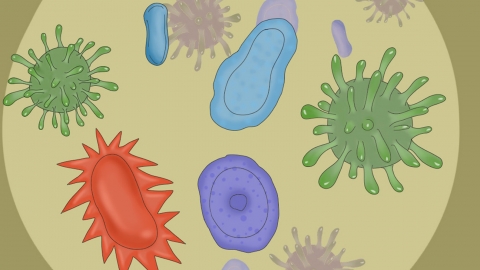What are the symptoms of HPV infection?
Generally speaking, HPV refers to human papillomavirus. The main symptoms of human papillomavirus infection include skin warts, genital warts, vulvar squamous intraepithelial lesions, abnormal vaginal discharge, and contact bleeding. If discomfort occurs, timely medical consultation is recommended. Detailed analysis is as follows:

1. Skin Warts
Human papillomavirus enters the epithelial cells through minor skin injuries, replicates and proliferates within the cells, and stimulates excessive proliferation and differentiation of epithelial cells, thereby forming rough-surfaced,明显 keratotic wart-like papules on areas such as hands and feet, such as common warts and plantar warts.
2. Genital Warts
The virus replicates extensively within epithelial cells of the skin and mucous membranes around the genitalia and anus, causing local abnormal cell proliferation and forming single or multiple scattered pale red small papules with soft texture and pointed tips. In later stages, they may merge into papillary, cauliflower-like, or cockscomb-like growths.
3. Vulvar Squamous Intraepithelial Lesions
If the viral infection involves the vulvar mucosa, it may affect cell proliferation and differentiation, leading to abnormal proliferation and lesions of mucosal cells, manifesting as vulvar itching discomfort, local mucosal ulceration, and damage.
4. Abnormal Vaginal Discharge
After females are infected with human papillomavirus, if the virus infects the cervix or vaginal mucosa, it may cause a local inflammatory response. Increased vaginal discharge, odor, or blood-tinged leukorrhea may occur.
5. Contact Bleeding
Contact bleeding is common in cervical human papillomavirus infection. After cervical infection with human papillomavirus, local cell lesions and mucosal fragility may occur, resulting in slight vaginal bleeding after sexual intercourse or gynecological examinations.
The symptoms of human papillomavirus infection vary depending on the viral subtype, infection site, and individual differences. If related symptoms appear, timely medical consultation for examination and treatment is recommended.









